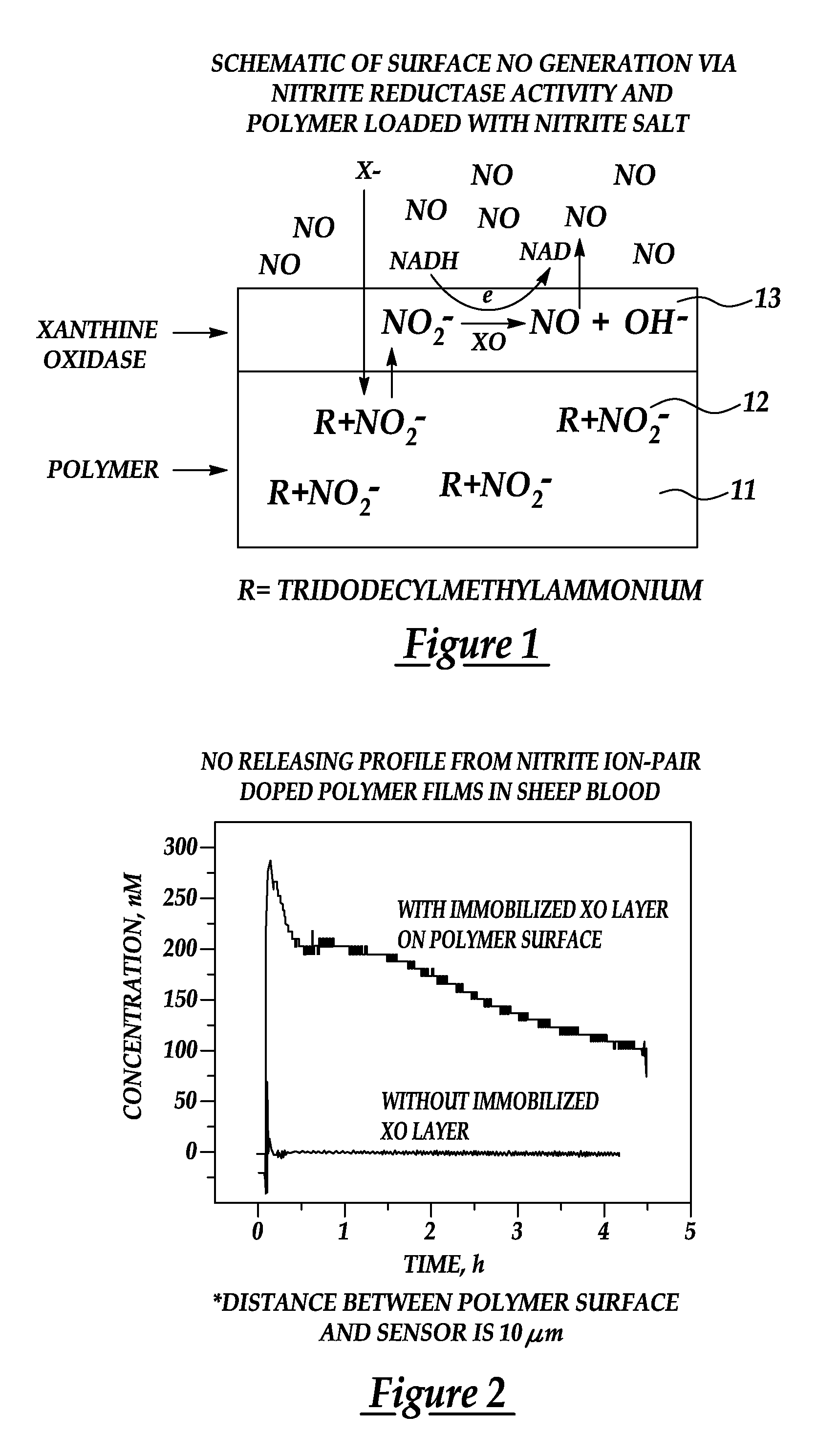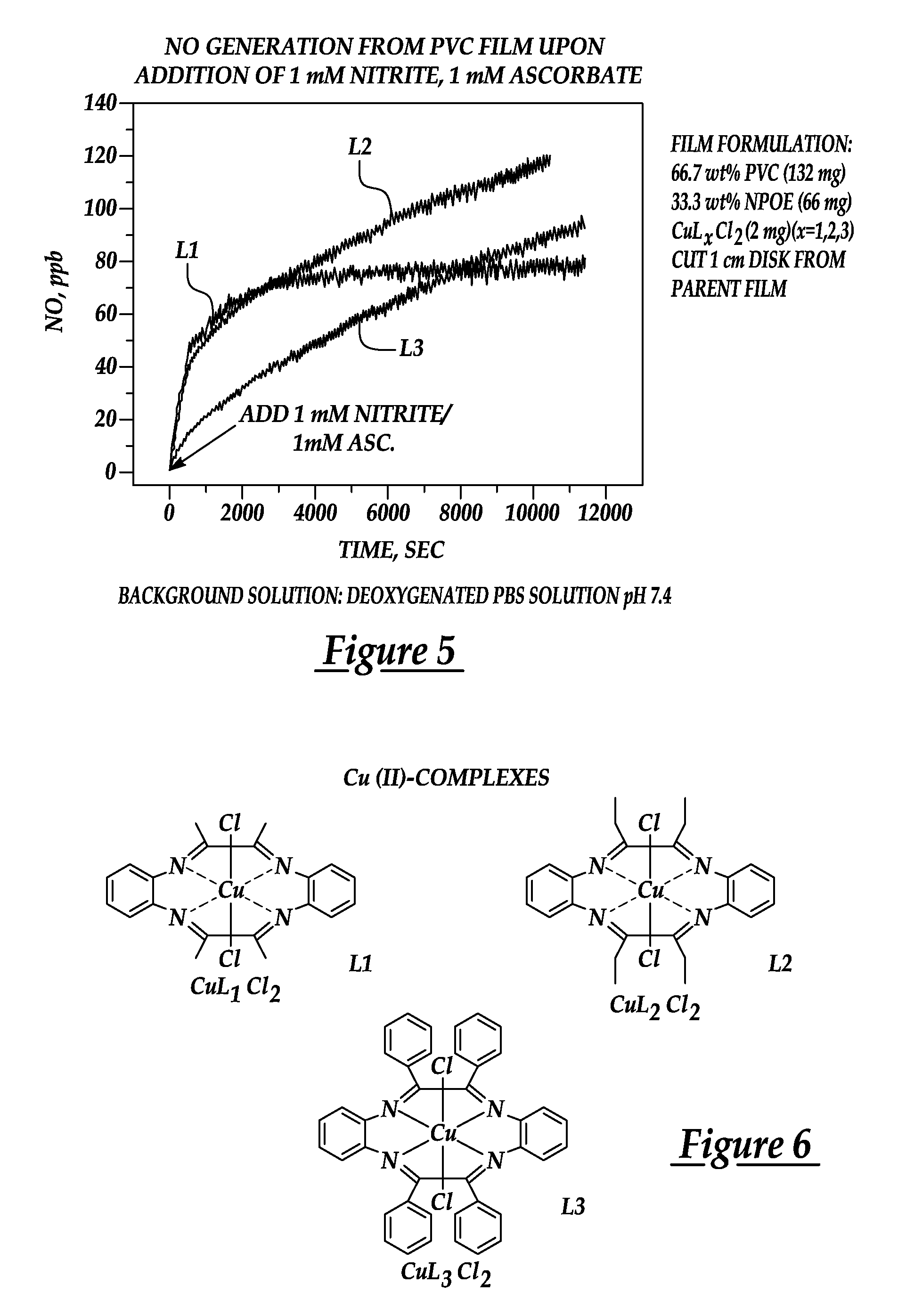Method of increasing biocompatibility of medical device by generating nitric oxide
a technology of nitric oxide and biocompatibility, which is applied in the direction of metal/metal-oxide/metal-hydroxide catalysts, prosthesis, etc., can solve the problems of thrombosis, pvc, polyurethane, silicone rubber, etc., and the polymers typically used to fabricate such devices are still subject to platelet aggregation and adhesion to the surface of these materials, and complex synthesizing
- Summary
- Abstract
- Description
- Claims
- Application Information
AI Technical Summary
Problems solved by technology
Method used
Image
Examples
Embodiment Construction
[0025]An embodiment of the present invention provides a novel, reproducible nitric oxide sensor for the detection of the S-nitrosothiols. In an embodiment, the sensor is coated with a material having a catalytic or consumptive / reactive copper ion complex therein. The sensor may advantageously be used to take numerous measurements of the nitrosothiol content in a sample over several days.
[0026]A further embodiment of the present invention provides a novel approach for enhancing the biocompatibility of materials of the type suitable for implantation in a human or animal body and / or for prolonged contact with the body or blood. In accordance with a broad aspect of the invention, materials have been developed to have reactive agents that are capable of generating, at the materials' surface / blood interface, physiologically significant amounts of NO when in contact with blood. A reactive agent, having nitrite reductase and / or nitrite reductase-like activity, nitrate reductase activity, or...
PUM
 Login to View More
Login to View More Abstract
Description
Claims
Application Information
 Login to View More
Login to View More - R&D
- Intellectual Property
- Life Sciences
- Materials
- Tech Scout
- Unparalleled Data Quality
- Higher Quality Content
- 60% Fewer Hallucinations
Browse by: Latest US Patents, China's latest patents, Technical Efficacy Thesaurus, Application Domain, Technology Topic, Popular Technical Reports.
© 2025 PatSnap. All rights reserved.Legal|Privacy policy|Modern Slavery Act Transparency Statement|Sitemap|About US| Contact US: help@patsnap.com



